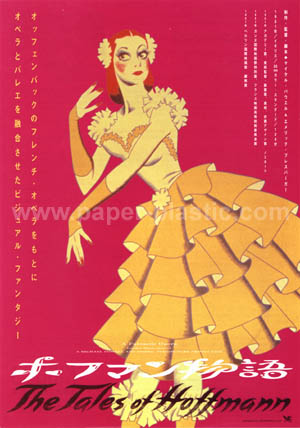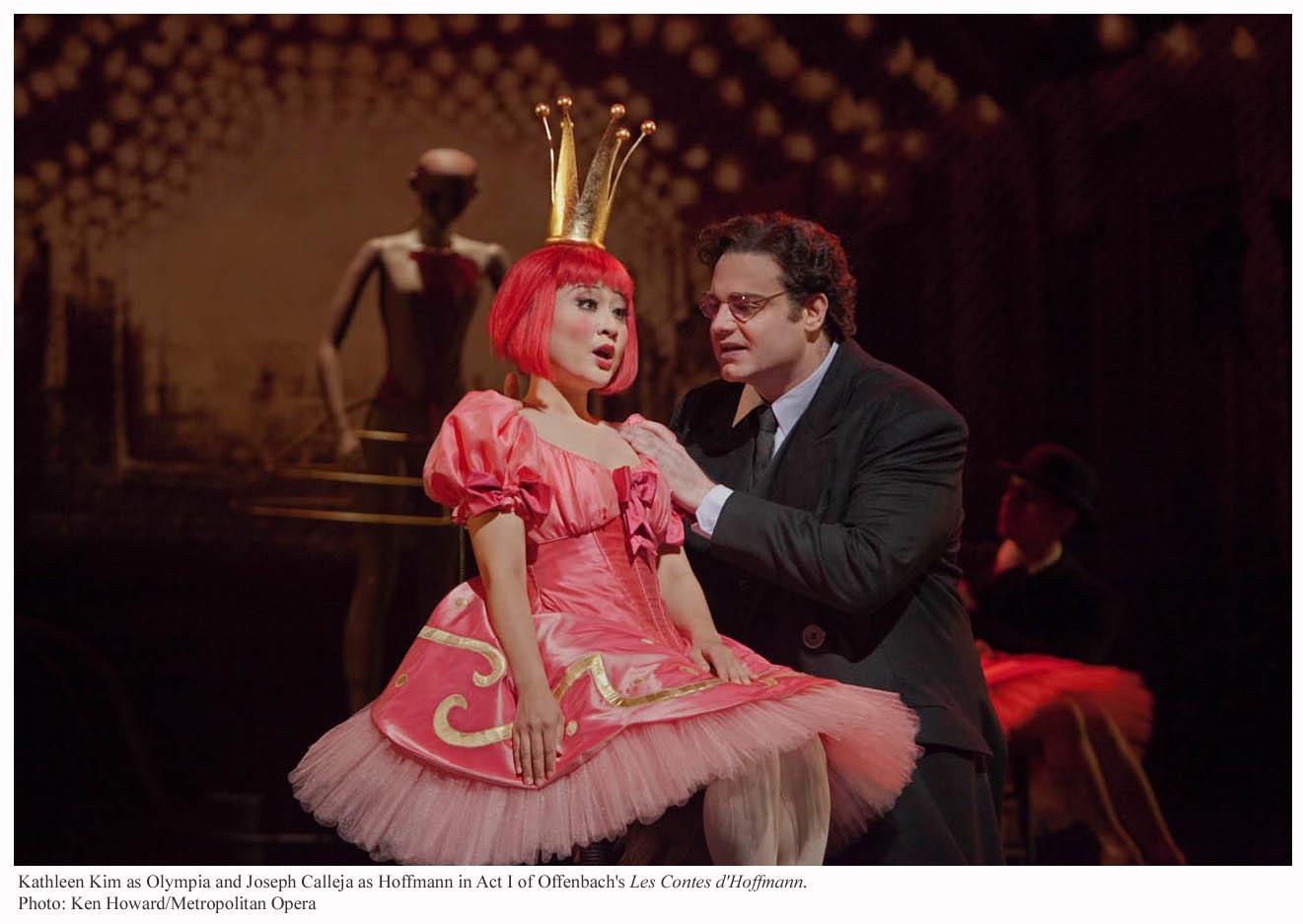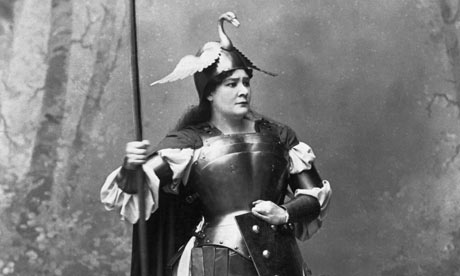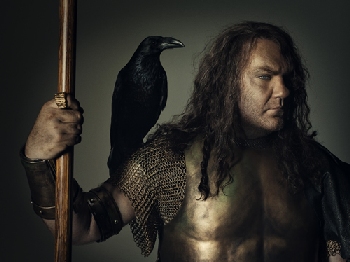Theatre has always been a way to convey things that are not possible in the real world, a place where reality and magic converges and blurs. From the beginning of theatre, the audience was able to come face to face with the supernatural; witness Apollo descending from the heavens in Euripides's
Orestes to cure all evils. Witness Prospero conjuring his fantastic storm, Puck tinkering with the love of mortals. Special effects meant to make these events seem more convincing were created almost as early as the first theatres.
Lately, however, the magic has been relocating more and more to the valley of death known as Hollywood, and theatre has been lost in a void of super realism or elements of magic that serve merely as plot points. Science fiction, a genre almost exclusive to film in the world of the visual arts, appears to have bypassed theatre completely. Valiant though the attempt may have been, the
Metropolis or the
Young Frankenstein musicals will never quite achieve the original films' level of greatness, nor can the
Lord of the Rings stage production capture the epic sweep of the books like the filmed trilogy did.
Spider-Man: Turn Off The Dark, despite everyone's best efforts and intentions, appears to have achieved a most paradoxical level of absurdity and mediocrity combined.
But even in theatre, where science fiction or fantasy seems to be almost toxic, there are a few outstanding and original examples. Listed below are a couple of my personal favourites. These shows are not cult classics, though I do like to listen to the
Forbidden Planet cast album now and again; they are all successful works.
Part One of this series focuses with opera, which seems to like magic and science fiction a whole lot more than I anticipated.
Věc Makropulos (The Makropulos Case)
Opera by Leoš Janáček
Off the play by Karel Čapek
 |
| 1966 recording in the original Czech |
Leoš Janáček, a Czech composer who started very late in life writing opera, based this fantastic piece off a play of the same name by Karel Čapek, the writer who coined the term 'robot' and was an influence on many more, better-known sci-fi writers such as Aldous Huxley.
 |
| At the English National Opera, 2010 |
The opera follows the life of one 'E.M.', a woman who is the better part of 400 years old and still looking marvelous. Her condition becomes the focal point to several other plots in the opera, which are all tied together neatly with typical operatic candor in the final act.
While satisfying several plot points, E.M.'s long-lasting youth is also explored in the contemplative speculation typical of science fiction, and is very satisfying to look at through this lens as well.
 |
| The recent production at the San Francisco Opera. |
First performed in 1926, the opera is a fantastic piece of science fiction, wrapped in a satisfactory parcel of innovative music, fantastic roles for women, and the opportunity for theatre magic in its finest form. The end of the opera, which is too good for me to give away, has no doubt presented a delightful challenge for many a visual effects person.
Les Contes d'Hoffmann (The Tales of Hoffmann)
Opera by Jacques Offenbach
Off the stories of E.T.A. Hoffmann
 |
| Poster for Powell and Pressburger's film featuring Moira Shearer. |
E.T.A. Hoffmann has been the source of many great theatre pieces, not least of all anything to do with an enchanted nutcracker. His works could be considered science fiction, though often his stories cross unabashedly into the realm of dark fantasy. That's cool, though, because I decided to include fantasy on this list too. Jacques Offenbach is best known for his satirical and often fantastical operettas; he created the only can-can tune that you can hum.
 |
| Kathleen Kim and Joseph Calleja in the 2009 Met production |
This opera follows the author, who is relating his adventures throughout Europe to his student friends while waiting for his actress girlfriend to triumph once more on the stage. It turns out he's had a really bad string of rough relationships lately; Olympia turned out to be an automata, Antonia had a fatal case of chronic singing, Giulietta was a scion of Satan, and they all managed to break poor Hoffmann's heart. His constant companion Nicklausse is the only one who seems to realize that every girl Hoffmann is even moderately attracted to is likely some kind of psychical phenomenon.
 |
| Natalie Dessay as Olympia in Roman Polanski's production at the Paris Opera |
Despite all appearances, this is an absurdly fun and tuneful opera, and if done right its music and its imagery will stick in your head for months to come.
The Ring Cycle
Opera by Richard Wagner
Off Norse mythology
The lives of gods and the people they play with have always been an object of fascination in opera; the very first ones were about the Greek and Roman pantheon. In a wicked subversion, Wagner took these operas as inspiration of sorts, and applied their tropes to Norse mythology, creating a monster a masterpiece that has inescapably defined the art form since its inception. It has also proven incredibly influential in other art forms, inspiring a whole slew of movies and theatre pieces in all genres that take its cue.
 |
| Ernestine Schumann-Heink, the first Brunnhilde, and totally badass for actually wearing the breastplate. |
As you may know, the Ring Cycle comprises of four operas detailing the decline and fall of the Gods due to their all too human fallibility. It's known for vikings, though there aren't any to be found in all sixteen hours, valkyries, angst, a quest for one ring to rule them all, leitmotifs, some bitching throw-downs, and have I mentioned the angst?
 |
| Bryn Terfel as Wotan in the Met's ongoing Cycle. |
Like another interminable series about a quest for the one ring to rule them all, the Ring Cycle has its hardcore fans. These fans will be willing to sit in the (uncushioned) seats at the Bayreuth Festival Theatre for an entire beginning to end marathon, which is insane and also how Wagner planned it. Though they don't tend to dress up like their favourite characters for the duration, so allowances can be made. I admire them for their steadfastness.
 |
| Fucking cosplayers... |
Completing the entire cycle is considered any new opera house's (and its audience's) baptism of fire, although to be fair these operas can be enjoyed by themselves. I find I have to be in a specific state of mind to watch any of these operas. An epic, awesome, badass state of mind. There is a lot to be appreciated; one has to find a new plane of existence from which to appreciate it from.
The Sorcerer
A totally original work by Messrs Gilbert and Sullivan
If the Ring Cycle is the opera equivalent of The Lord of the Rings, then the canon of Gilbert and Sullivan are more along the lines of Terry Pratchett's Discworld series. Set in a world that is fundamentally different from our own, and yet incredibly similar, their many tuneful operettas managed to make incredibly shrewd observations about Victorian England. Sure enough, these pieces transcend their Victorian roots and make excellent satirical pieces today.
 |
| A production from Harvard University |
Gilbert and Sullivan's operettas were also sure to have a magical potion of some kind in each of their pieces save a few. Most see this as a flaw; I find it absolutely charming. The first of the operettas to exhibit this tendency was The Sorcerer, wherein a love philtre is the potion that is consumed by most of the cast by the end. It also has one of the less convoluted plots, making it a very good introduction for novices.
 |
| Poster for the original production. |
Like the Ring Cycle, Gilbert and Sullivan has its own cadre of strict adherents, who are less dour but no less serious about their passion for patter songs and dry British humour. They are also horribly fun to be around. Find a Gilbert and Sullivan fest near you (there will always be one near you, regardless of your nationality, language, or rurality) and bump elbows with these guys. And then drop in for some excellent operetta. But watch the refreshments; God knows what potion's mixed up in the Coca-Cola.










No comments:
Post a Comment